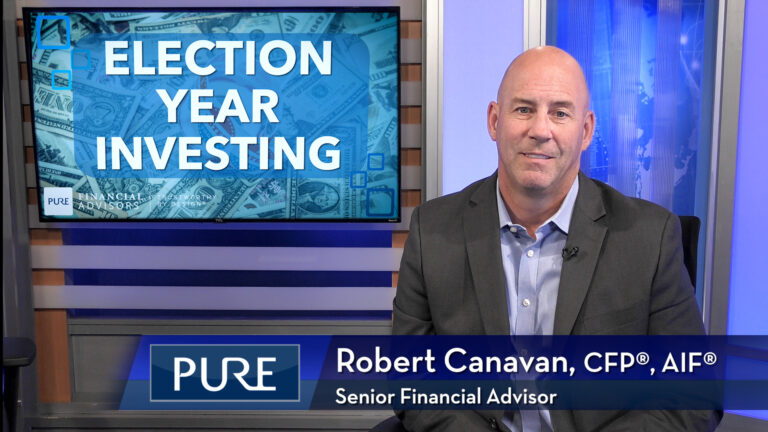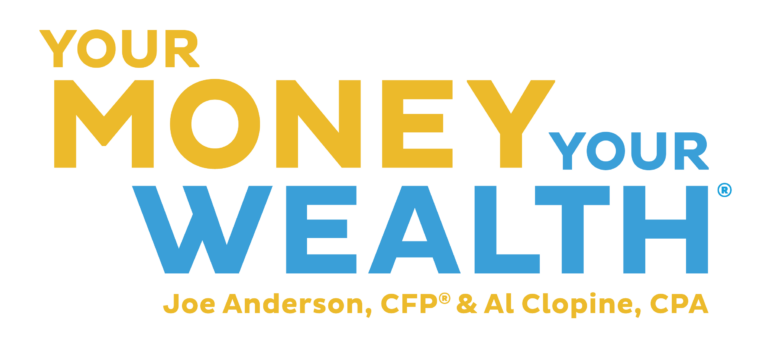An S corporation, also known as a S subchapter, is one type of legal business structure common among small businesses. For self-employed individuals, the benefits of S Corps lie in their advantageous tax benefits but navigating through regulations can be challenging. To assist in this, Pure’s Tax Planner, Joey Bailey, CFP®, CPA, offers four tips to improve your tax savings and fine-tune your financial approach.
FREE GUIDE | Small Business Tax Filing Guide
Transcript
Welcome to Tax Talk today it’s all about S corporations.
First, let’s talk about some of the basics:
Have you paid yourself a salary? As a person working in your own S corporation, you need to pay yourself a reasonable salary and issue yourself a W-2. What’s reasonable? Well, nobody knows that answer better than you. It is contingent on your business and your work, and so ultimately you are the best person to decide what is reasonable.
Make sure you’ve got your bookkeeping sorted. This is your revenue and expenses. Your gross revenue, your returns and allowances, your cost of goods & services, salaries, depreciation, interest, rent, marketing, employee benefits – all of the expenses your S corporation incurred. For items like depreciation, make sure you stay abreast of changes. Bonus depreciation was 100% in 2022, but that changed to 80% in 2023, and will be reduced to 60% for 2024. Now, there may be congressional action here, so stay alert for changes.
Tax Tip 1: Have an Accountable Reimbursement Plan
This is commonly overlooked. You are both an employee and business owner. You’re going to have expenses that are both personal and business related. Think about your cell phone, your automobile – those things that are used both personally and professionally. Setting up an accountable plan allows you to be reimbursed by the corporation tax-free and allows the corporation to deduct the expense, so make sure you turn in receipts for these expenses.
Tax Tip 2: Deducting Health Insurance Costs
As an employee, health insurance is normally paid for pre-tax, but when you own more than 2% of an S corporation the health insurance costs are taxable on your W-2 and you deduct self-employed health insurance on your 1040. It sounds simple enough, but there are many moving parts and several forms needed to get there. If someone is preparing your payroll forms, they should understand this, but you have to get them the information.
Tax Tip 3: Retirement Plan Contributions
As an owner of an S corporation, you can establish a qualified retirement plan that allows for you as the employee, and your S Corporation as the employer to make contributions to the plan. For a 401(k), if you contributed as an employee, you could have already put in a maximum of $22,500 for 2023, plus a catch-up if you’re over age 50, this lowers your W-2 income. Employer contributions don’t have to be made until your filing deadline, that’s March 15th, and can be up to an additional 25% of your wages. Your total 401(k) contributions can be up to $73,500 if you’re over age 50. Now, be cautious, because whatever you set up for your employee match applies to all employees. So, if you have other employees you need to figure out what kind of match works.
There are also SEPs and SIMPLE plans, and these are similar to the 401(k), but they have different contribution limits and different participant rules you need to consider.
Our final tax tip: Understand Your QBI Deduction
This is a deduction of up to 20% of your net business income subject to certain AGI phase out and phase in limits. You’ll need to know if you are a specified service trade or business (SSTB). An SSTB is a business that relies on the professional reputation of its owners and employees. Think about your law firms, accounting and consulting firms, or performing arts and athletics. These businesses will completely phase out of a QBI deduction if they’re over a certain AGI limit. For all other business owners– those non SSTBs – there’s a phased in limit based on business property acquired and employee wages paid.
If you have multiple entities there are planning strategies that allow you to aggregate the business property acquired and the employee wage costs, which may result in a better QBI deduction.
The QBI deduction is probably one of the more complex areas to understand, and implementing tax strategies to reimburse yourself, or deduct health insurance and contribute to your retirement plan may impact your QBI. But maximizing this deduction can materially reduce your taxable income.
S-Corps come with some great tax benefits, but it can also be difficult to navigate the complexity of the rules, and much of this should be done in coordination with your overall financial goals in mind. So, if you have questions or need help navigating your financial plan, take advantage of our complimentary tax analysis.
Subscribe to our YouTube channel.
IMPORTANT DISCLOSURES:
• Investment Advisory and Financial Planning Services are offered through Pure Financial Advisors, LLC, a Registered Investment Advisor.
• Pure Financial Advisors LLC does not offer tax or legal advice. Consult with your tax advisor or attorney regarding specific situations.
• Opinions expressed are subject to change without notice and are not intended as investment advice or to predict future performance.
• Investing involves risk including the potential loss of principal. No investment strategy can guarantee a profit or protect against loss in periods of declining values.
• All information is believed to be from reliable sources; however, we make no representation as to its completeness or accuracy.
• Intended for educational purposes only and are not intended as individualized advice or a guarantee that you will achieve a desired result. Before implementing any strategies discussed you should consult your tax and financial advisors.
• Pure Financial Advisors is not affiliated or endorsed by the Internal Revenue Service (IRS) or affiliated with the United States government or any other governmental agency.
CFP® – The CERTIFIED FINANCIAL PLANNER™ certification is by the Certified Financial Planner Board of Standards, Inc. To attain the right to use the CFP® designation, an individual must satisfactorily fulfill education, experience and ethics requirements as well as pass a comprehensive exam. Thirty hours of continuing education is required every two years to maintain the designation.
CPA – Certified Public Accountant is a license set by the American Institute of Certified Public Accountants and administered by the National Association of State Boards of Accountancy. Eligibility to sit for the Uniform CPA Exam is determined by individual State Boards of Accountancy. Typically, the requirement is a U.S. bachelor’s degree which includes a minimum number of qualifying credit hours in accounting and business administration with an additional one-year study. All CPA candidates must pass the Uniform CPA Examination to qualify for a CPA certificate and license (i.e., permit to practice) to practice public accounting. CPAs are required to take continuing education courses to renew their license, and most states require CPAs to complete an ethics course during every renewal period.














